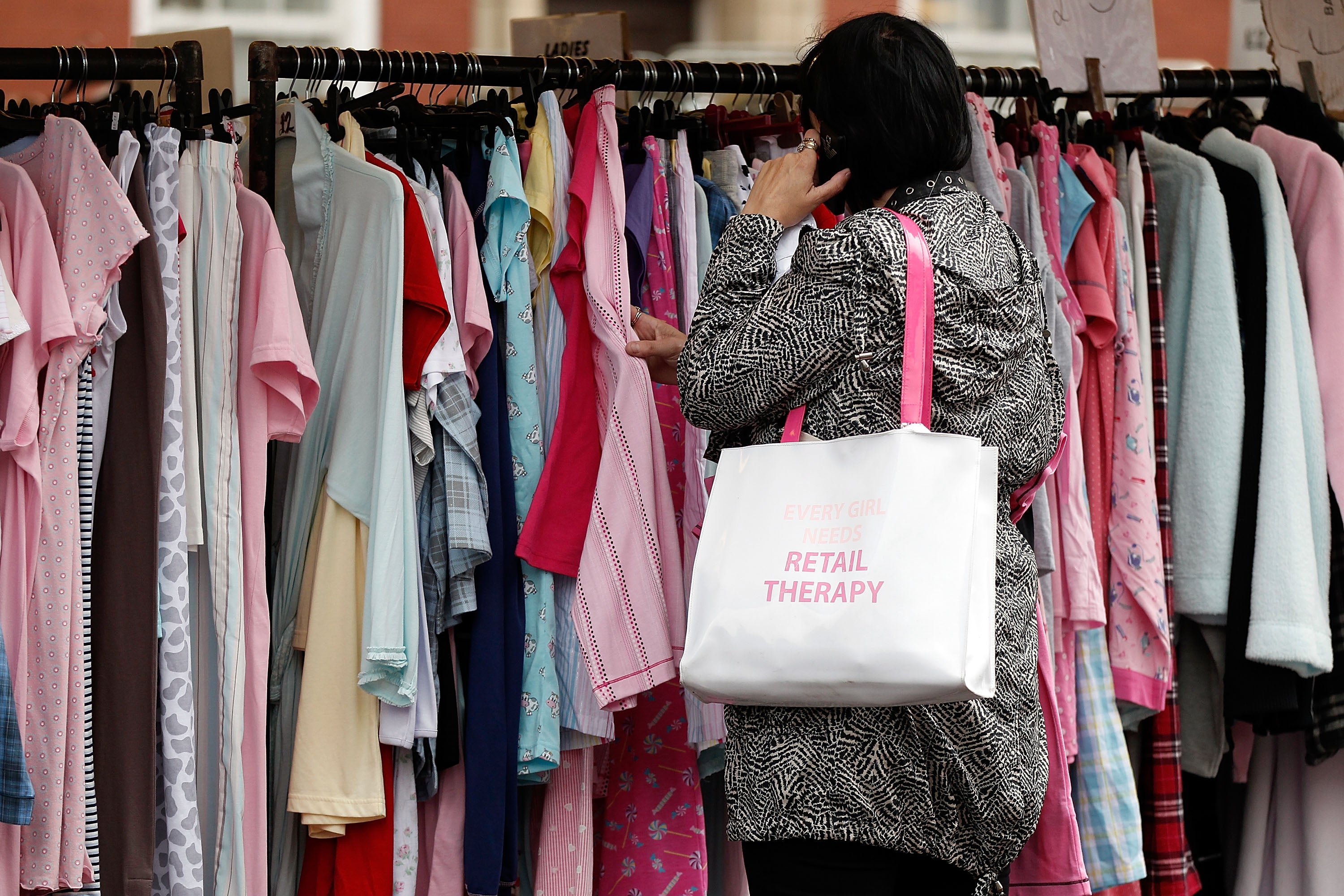Almost half of adults don’t consider fast fashion’s environmental impact, poll suggests
Half of UK adults currently purchase between one and five new items of clothing each month, the poll revealed

Nearly half of adults have admitted they don’t care about the impact of purchasing fast fashion - despite 71 per cent agreeing its one of the largest contributors to the current climate crisis.
A poll has uncovered Britons’ views and understanding of the role fast fashion plays on the detrimental effects on the environment.
While many feel they should be doing more to stem their consumption of fast fashion, 79 per cent believe there is more to be done by businesses to inform the public of the environmental impact of the clothing they purchase.
And 70 per cent think consumers or shoppers have a right to know how much carbon has been created in the manufacturing of their garments.
While 59 per cent believe all clothes should come with an environmental efficiency rating so consumers are able to make an informed choice.
Of those polled, 65 per cent said they would be more likely to buy a clothes garment if it was rated green (Eco-Friendly) over red (Environmentally damaging).
A further 41 per cent would change their buying habits if they knew the true environmental impact of their purchasing.
The poll was commissioned by the Christopher Nieper Foundation, which is calling on the government to create a Carbon Checker, an environmental initiative for kite marks for clothing to take steps towards net-zero in the industry and incentivise the sector to compete for the most sustainable supply chains.
The survey also revealed 50 per cent of UK adults currently purchase between one and five new items of clothing each month.
This equates to a mammoth 60 items of clothing per year per UK adult.
However, many of these purchases never see the light of day with 41 per cent admitting that they often return items of clothing that they bought online.
Of those, the majority said that when returning new clothes, they don’t consider the additional impact it may have on the environment.
Shockingly, 17 per cent said that if they knew the true value of the environmental impact of their purchasing, they wouldn’t change their buying habits at all.
Christopher Nieper OBE, CEO of clothing manufacturer David Nieper, which has been sustainably making clothes in Britain for 60 years, and head of the Foundation said: “The fashion sector is worth £26 billion and Britain is a world leader in fashion design and fashion education, yet nearly everything we wear is imported.
“For too long the clothing industry has ignored the consequence of emissions which has led to long-distance supply chains and production in countries with very low proportions of sustainable energy.”
“Coupling this with the UK public’s current consumption of fast fashion, this has created a recipe for disaster for the world’s climate.
“It is time now to be better informed as a nation about the problems our consumption causes and to single out those brands not doing enough to support the move to net-zero.
“Making fashion in the UK is highly effective and the opportunity for job creation is huge.
“Even a small increase in UK-sourced manufacturing could generate tens of thousands of new jobs here.
“If consumers knew the environmental footprint of garments at the point of purchase it would, at last, be possible to choose planet-friendly garments over planet-damaging versions.
“This in turn should incentivize the sector to compete for the most sustainable supply chains.
“Our suggested approach is to form an advisory group, a consortium of organisations which is both geographically diverse and representative of the wider UK fashion and textile industry.
“And our challenge to government is to act now and introduce carbon checker labels to give consumers a choice and our planet a chance.”
SWNS
Join our commenting forum
Join thought-provoking conversations, follow other Independent readers and see their replies
Comments
Bookmark popover
Removed from bookmarks